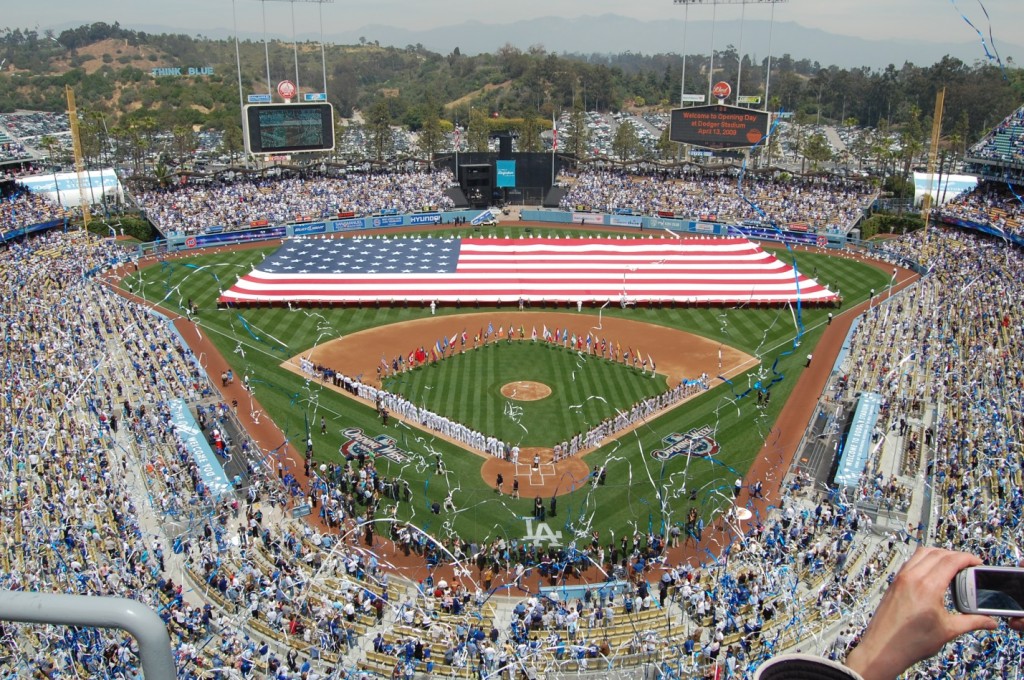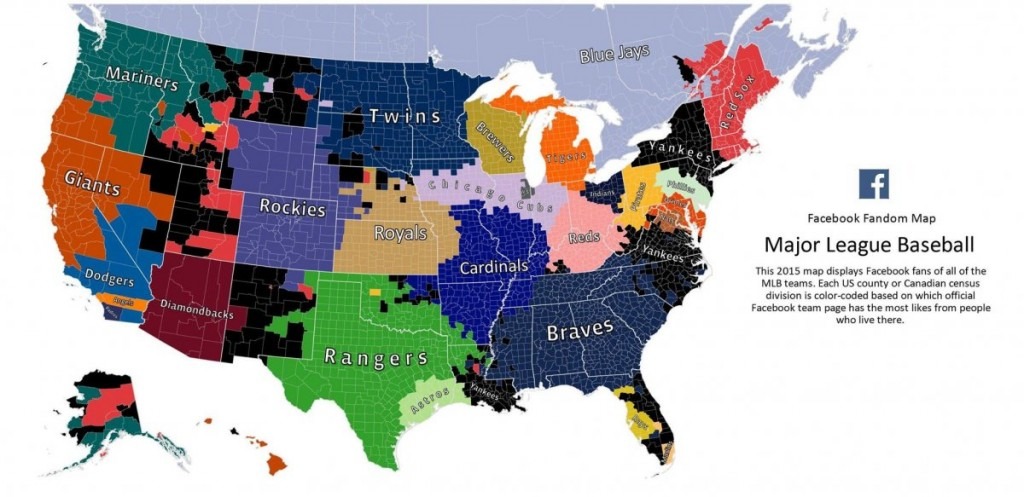Welcome to Opening Day for 28 of the 30 Major League Baseball today (barring rain or snow-outs).
(Actually, the Cards and Cubs had their debut last nigh, and true to form, there was no joy in Wrigley Field as the home team lost its first game in the Joe Maddon Era.)
That “Opening Day” spirit is the subject of today’s post because any team has the chance to be the last one standing in November when World Series rings are won and lost.
The same is true for your radio station. Anything can happen and often does in baseball…and in radio. Hope springs eternal whether you’re on the baseball diamond or in the air studio. Baseball and radio veterans will probably tell you they’ve seen it all – sure-things that weren’t, also-rans that made amazing comebacks, and players that were counted out and then unexpectedly rose to the top.
On any given day, just about any team – or station – can put it together, mobilize a staff, and go all the way. “From worst to first” isn’t just a sports mantra. It happens in both radio and baseball.
“Hope springs eternal” is a baseball axiom, especially in April. And as every rated radio station is now immersed in the Spring Book, the analogies are obvious.
But as it is also said, ‘hope is not a strategy.” And in fact, all 30 MLB managers have gone to great lengths to prepare for the season.
And that’s a reminder to every programmer and sales manager that a team meeting, strategy session, and analysis of past performance are essential steps in getting the “season” off to a good start.
Here are some of the actions that every MLB GM and managers have taken that every radio management group should consider as well. In honor of the National Pastime, there are nine of them:
- Set goals and objectives – While every team seeks to end up in the Fall Classic (just as you aspire for your station to be #1), there are many thresholds – personal and for the team – that players and managers hope to reach. For your station, having succinct, clear goals – with rewards that accompany them – is essential to keeping the team stay motivated and focused.
- Define roles and responsibilities – A key to achieving team chemistry boils down to everyone understanding exactly what part they’ll play in the team’s success. Like a cleanup hitter, the morning show needs to understand its special role. On the other hand, the part-timers make a contribution as well, much like baseball’s utility players or pinch-hitters. Of course, each station defines its sales department’s duties differently, but a key to success is everyone understanding what it is they should be doing – and not doing.
- Work on teamwork and chemistry – This is a difficult area, especially because of the length of a baseball campaign. The regular season – sans Spring Training and the Playoffs/World Series – runs 162 games. As they say, “It’s a marathon,” with few days off. Radio’s not much different – a 24/365 business where something important – an emergency, a death, a local issue – can occur without warning, forcing the entire staff to work together. Keeping everyone’s head in the game during a long season is critically important. Those DJ dinners, off-site sales meetings, and impromptu Friday afternoon get-togethers can be a huge motivator, keeping the staff together even during trying times.
- Create a great fan experience – All professional (and college) sports organizations have come to the realization that fans can enjoy a game – for free – in the comfort of their own homes on a big screen TV. It didn’t used to be that way because back in the day, games weren’t as universally televised and ticket prices were modest. Today, the in-game experience is critical to keeping it fun, exciting, and interesting. In radio back in the ‘70s, ‘80s, and even the ‘90s, stations often took fans and advertisers for granted because they had few options. Today, customer service and a great experience – for both the audience and clients – is an important factor that can separate teams and be a difference-maker.
- Practice and preparation – It’s not easy holding practices during the long season, but disciplined teams find a way to be sure they’re working on the fundamentals – as well as the little things that can win a close game. For radio, rehearsal shouldn’t just be reserved for a new morning show. When a new contest or promotion is launched, bringing the staff together for updates – and when necessary – run-throughs to be sure that execution is flawless when something new hits the air can be essential. And then there’s player preparation. In baseball, they show up hours before each game to stretch, get mentally ready, study the opposition, and just get in the proper mindset. Radio would do well to steal this habit from baseball’s best.
- Watch game film – Even the best players fall into slumps during the long season, and one of the ways to combat those downturns is to watch videos of performances (at-bats, pitching) to look for ways to improve. On the radio side of the ledger, the arduous and often trying task of airchecking can be essential to improving. For jocks that don’t have a PD who can coach them, seek help from peers.
- Connect with the community – MLB teams know that in order to be effective as a team and as an enterprise, it is essential to root into local organizations and groups. Tapping into local loyalty, traditions, and the movers and shakers in the hometown space can be especially effective during a down year when the team simply isn’t performing. Those local relationships can open doosr for radio stations, and can also help during ratings downturns, which are also inevitable. Fan outreach is important in any sport.
- Use the new tools – MLB – and the other sports leagues – has realized the power of digital media in keeping up fan interest and staying current with changing times, fan attitudes, and the younger generations. From social to mobile to websites, every team shows up and there’s a plan in place. Giving the fans a voice is part of this process, as well as access and great experiences. Radio has the same tool kit at its as any sports team. There’s never been a better opportunity for stations to apply digital strategies to its business model to serve fans, advertisers, and communities. But it starts with a strategy.
- Create events to keep it fresh – Whether it’s with merch – especially expanding the variety of logoware sold to fans – or simply creating new and exciting events to keep the fans interested, MLB teams work hard to make many of their 81 home games special. Sure, “Bat Day” has become as cliché as “Twofer Tuesday,” but most teams dig deeper to create themes devoted to pop culture icons like Elvis and “Star Wars,” collectibles like “Bobblehead Nights,’ as well as more serious designated games to celebrate military veterans, breast cancer awareness, and local ethnic groups (“Polish-American Night”). MLB teams are reminiscent of radio stations, especially in the pre-PPM era, that go above and beyond to “reshuffle the deck” and create points of interest for fans to keep things interesting.
So, here’s to your team – may they be successful on the diamond this summer and may they be still playing this fall.
But remember that while baseball teams might be able to say, “Wait until next year,” that slogan has never been acceptable in broadcast radio.
Play ball!
Postscript: The map below is Facebook’s annual depiction of MLB fan loyalty, based on the most number of team “likes’ based on geographic location. Pity the Mets, the A’s, and the White Sox.
- Can Radio Afford To Miss The Short Videos Boat? - April 22, 2025
- Media And Technology In 2025: Believe It Or Not! - April 18, 2025
- In Radio, You Just Never Know - April 17, 2025






Great post and excellent advice, Fred. GO TWINS!!
Er….TIGERS! Thanks, Doug!